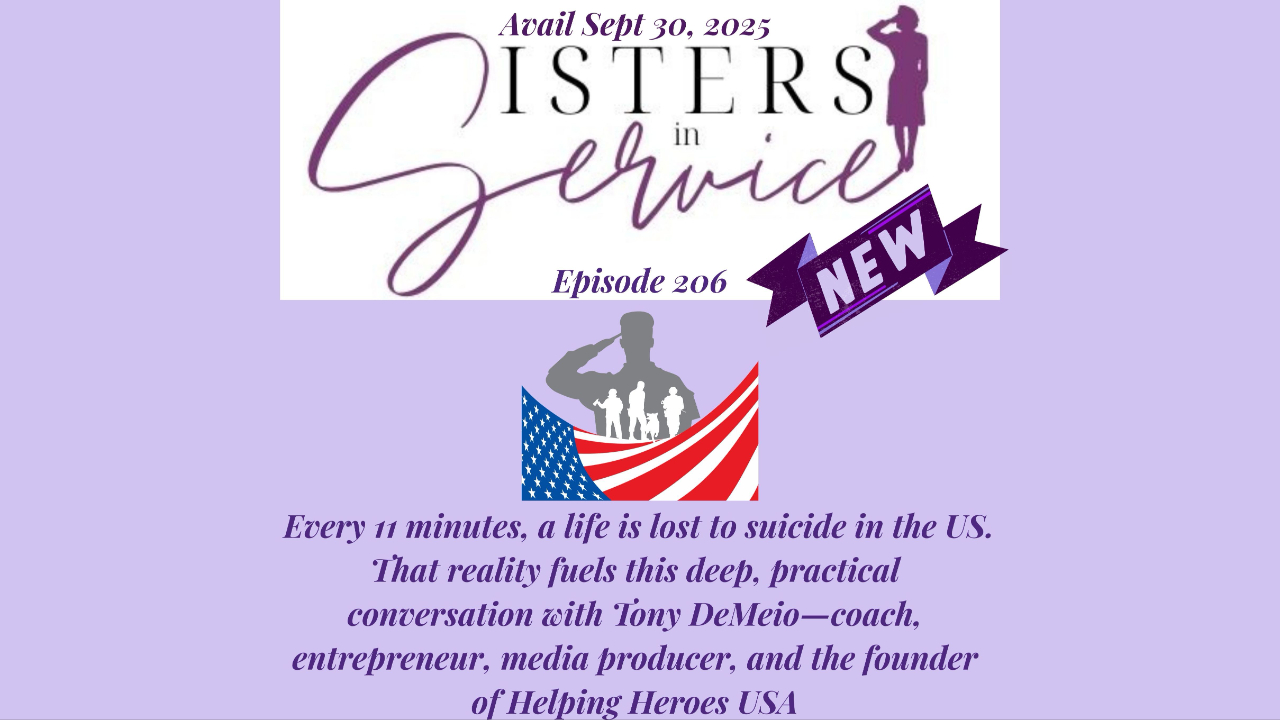Helping Heroes USA: Building a Top Veteran Mental Health Organization and Lessons in Suicide Prevention"
Oct 01, 2025
Tony DeMeio’s story begins on the sidelines and winds through boardrooms, factories, and studios before landing in a place that matters to every family: suicide prevention for veterans, first responders, and law enforcement. He talks about being “born a football coach,” and the throughline is unmistakable—structure, discipline, and caring about people. Those traits carried him from UCLA’s Rose Bowl win to founding Duraflex Sports Products, building massive production lines for exercise equipment and even skateboards, then into seminar businesses and media production. The résumé is colorful, but the turn that matters is his move into veteran advocacy, and the humility he brought with it. He wasn’t a veteran. He wondered whether he’d be accepted. The answer came on long cycling events with Project Hero Ride Recovery, riding mile after mile next to men and women who had seen and carried more than most of us can imagine. He learned to listen without trying to match stories. He learned that compassion paired with attention opens doors that credentials alone never can.
That experiential learning sits under Helping Heroes USA, his nonprofit focused on suicide prevention and mental health for veterans, active duty personnel, and first responders. The problem is urgent. In the United States, there’s a death by suicide roughly every 11 minutes. Each loss ripples outward to around 135 people—family, friends, colleagues—who are affected and often haunted by questions of what they missed. The data for veterans is widely cited as “22 a day,” a figure Tony believes likely undercounts for complex reasons, including how deaths are recorded. First responder numbers are murkier still; unions track dues, not comprehensive causes of death, which leaves gaps in understanding and policy. Yet regardless of reporting, the pattern of risk is tragically consistent: isolation leads to depression, which can lead to self-medication, escalating to access to means, and then to a moment where hopelessness narrows options to a single terrible choice. Intervening in that downward spiral is both complex and simple—complex in systems, simple in human terms.
Tony’s approach is relentlessly practical. He teaches “support angels” to keep their radar up—friends, spouses, coworkers, and community members trained to notice early signs and to act with calm care. The signs can be subtle: a sudden wave of giving away cherished items, fastidious financial organizing after long neglect, sharp declines in hygiene, or abrupt social withdrawal. Life triggers like the death of a loved one, the loss of a combat buddy, job instability, divorce, child custody battles, and bureaucratic fights for benefits often stack pressure until even resilient people feel cornered. For veteran and law enforcement communities, firearm access increases lethality when someone is at acute risk. The message isn’t to panic or to lecture; it’s to engage. Start with presence, reflect what you’re seeing, and make it safe to talk without rushing to fix. “I care about you. I’ve noticed some changes. How are you really doing?” is more powerful than a motivational speech or a checklist of solutions.
Listening is a skill, and Tony, having produced more than 20,000 podcasts and conducted thousands of interviews, makes the case that interviewing and crisis support share the same core moves. Ask open questions. Sit with silence. Follow the thread without judgment. If someone says “I don’t know,” honor it—and gently ask, “What do you think it might be?” When the person hints at someone they trust, invite them into the circle. Support is a team effort: a spouse who sees the day-to-day, a battle buddy who knows the culture, a neighbor who can handle a ride to coffee at 7 a.m. on a rough Tuesday. Sometimes the right intervention is small but consistent—standing weekly coffee meetups, a ride to the car wash that doubles as an excuse to get out, or a lunch on a high-stress court date to break the solitude. Habits that nudge people out of isolation create anchors in weeks that otherwise blur into empty time.
There’s another barrier that needs naming: pride. Many veterans and first responders have been trained to “have it together,” responsible for people, assets, and mission outcomes under pressure. Asking for help feels like failure. Tony reframes this by shifting the burden from asking to accepting—offer help first, meet people where they are, and let them keep dignity. Not everyone in your life plays the same role. Some friends will push you forward, some will comfort, and some will listen without a plan. Knowing whom to call for which moment is resilience, not weakness. When imminent risk is present—substance misuse and a firearm in the house, a string of losses, talk of no way out—remove means if you can do so safely, widen the support circle, and route the person into professional programs. This is not about being a sole savior; it’s about refusing to be a bystander.
Listen to the episode HERE

Stay connected with news and updates!
Join our mailing list to receive the latest news and updates from our team.
Don't worry, your information will not be shared.
We hate SPAM. We will never sell your information, for any reason.

